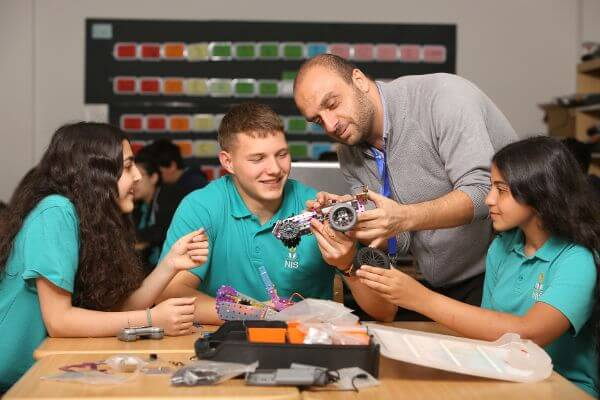Emotional intelligence plays a crucial role in a child’s overall well-being and success in life. Understanding and managing emotions, empathizing with others, and establishing positive relationships is a key aspect of emotional intelligence. The best American school in Dubai plays a vital role in nurturing emotional development in young children. Let’s explore the importance of emotional intelligence in early childhood and how nursery schools can create a supportive environment to foster its growth.
Emotional awareness:
Nursery schools provide a nurturing space for children to develop emotional awareness. Children learn to identify and label their emotions through discussions, stories, and guided activities. They understand that emotions are a natural part of the human experience and that all emotions are valid. This emotional awareness lays the foundation for children to recognize and understand their feelings and those of others.
Emotional regulation:
Nursery schools support children in developing skills for emotional regulation. They learn strategies to cope with challenging emotions, such as deep breathing, counting to ten, or taking a break. Teachers model self-regulation techniques and guide children in managing their emotions in a healthy and constructive manner. These skills enable children to navigate conflicts, handle frustrations, and maintain emotional balance.
Empathy and understanding:
Nursery schools foster empathy and understanding by encouraging children to recognize and appreciate the feelings of others. Through group activities, role-playing, and storytelling, children develop the ability to step into someone else’s shoes and see the world from their perspective. They learn to express empathy, show kindness, and offer support, laying the foundation for positive relationships and effective communication.
Emotional expression:
Nursery schools provide a safe and supportive environment for children to express their emotions. They encourage open communication, active listening, and validating children’s feelings. Artistic activities, such as drawing or journaling, allow children to express their emotions creatively. By providing opportunities for emotional expression, nursery schools empower children to develop healthy relationships with their emotions.
Conflict resolution:
Nursery schools teach children valuable skills for conflict resolution. Through guided discussions and problem-solving activities, children learn to communicate their needs, listen to others, and find mutually beneficial solutions.
Building resilience:
Nursery schools play a critical role in helping children develop resilience and bounce back from challenges and setbacks. By offering a supportive environment and guiding children through difficulties, nursery schools teach children that mistakes and failures are growth opportunities.
